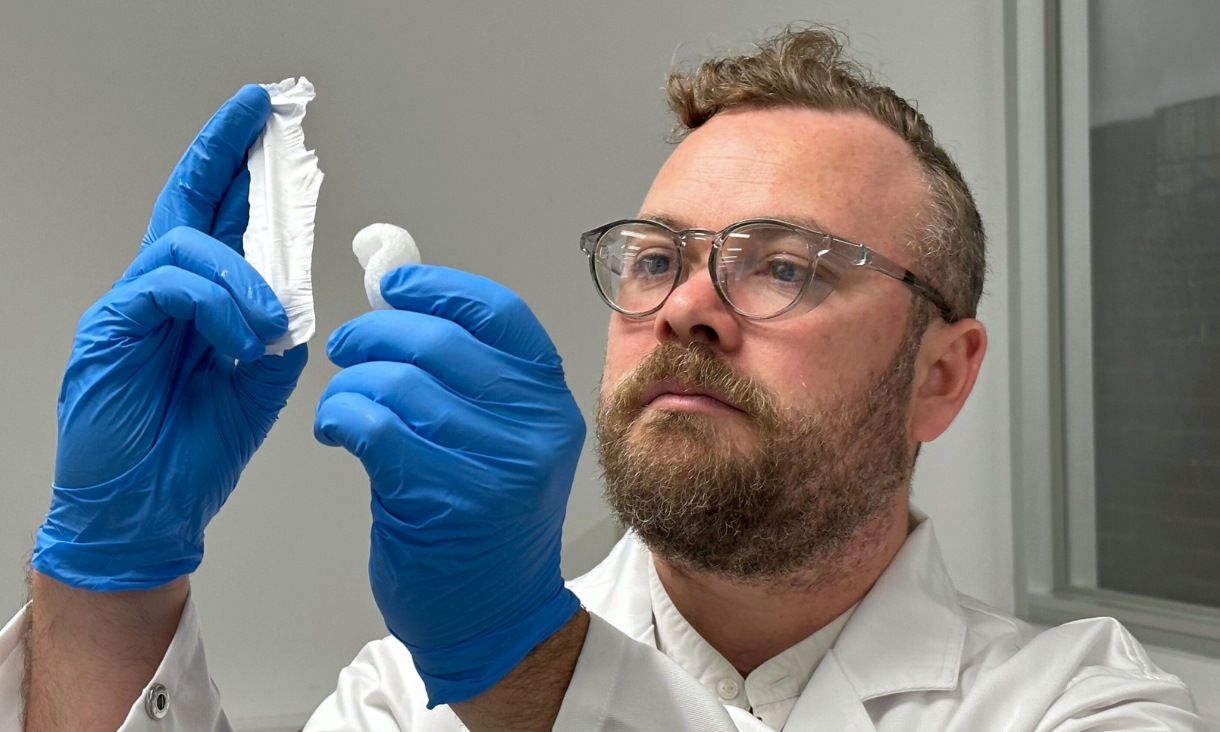Dr TJ Thomson, Senior Lecturer, Visual Communication and Digital Media
“The 'generative expand’ feature in Photoshop can be used to expand the borders of an image’s frame and ‘fill in the gaps’ that lay beyond the camera-produced image.
“In the case of MP Georgie Purcell, Nine wanted to extend a photo of her to make it fit better with a composition it aired during a television segment.
“The framing of the original photo matters a great deal in this context.
“When a wider-angle shot that shows Purcell’s body from head to hips is expanded, the generative AI just extends the dress. But when more tightly framed or cropped versions of the image are used—ones that stop at the neck or along the mid-torso, for example—Photoshop has to imagine a lot more about what lies below and, in this case, could plausibly generate images with more dramatic variations, including the one that shows some midriff.
“Adobe claims these expand features aren’t fully automated and have to be manually overseen by a human.
“Even if the process was fully automated, which I doubt, having journalism produced by AI without human oversight goes against the Media Entertainment Arts Alliance of Australia Journalist Code of Ethics.
“The code states journalists will ‘present pictures and sound which are accurate’ and disclose ‘any manipulation likely to mislead.’ Journalists aren’t fulfilling these responsibilities if they use AI carelessly.
“My research has shown that news organisations around the world are scrambling to develop policies to respond to generative AI and are actively seeking best-practice guidance on how to use these tools in creative, innovative, and ethical ways.
“The rapid pace of technological development and the many unknowns surrounding AI have proved challenging.
“Generative AI has become increasingly prevalent in the past six months as it finds its way into popular image editing and design tools like Photoshop or Canva.
“It offers many possibilities, including for time-poor media organisations, but it also poses challenges around misleading people, honouring copyright, and reproducing existing biases.
“The responsible use of generative AI is especially important in 2024, an election year in many countries, when the World Economic Forum has named AI-fuelled mis- and disinformation as the world’s most pressing short-term risk.
“Publishers and audiences alike need to have confidence in the news and information they create, source, edit or consume.
“Some technological measures, such as Adobe’s Content Credentials, are touted as a potential solution, but they haven’t yet been widely adopted and the need for critical thinking and media literacy will remain even as technological solutions for responding to AI’s ills evolve.”
Dr TJ Thomson is a senior lecturer at RMIT and an Australian Research Council DECRA Fellow. His research is united by its focus on visual communication.
***
General media enquiries: RMIT External Affairs and Media, 0439 704 077 or news@rmit.edu.au




